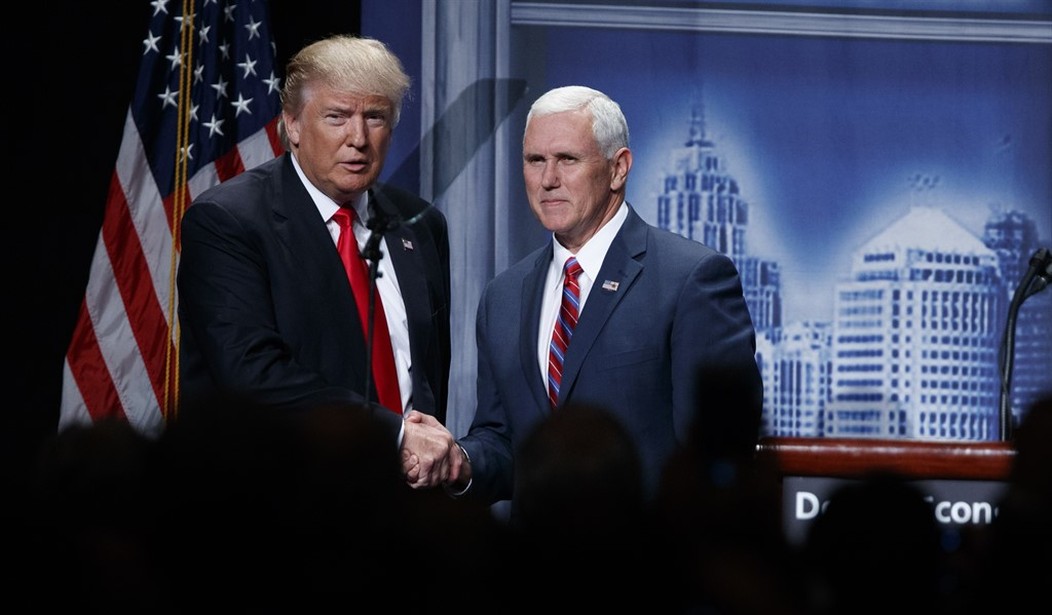Donald Trump gave a major economic speech in Detroit, Michigan, on Monday. In general terms, he will be lowering marginal tax rates for large and small businesses and all income classes. He also proposed a hike in the standard deduction for families, as well as special deductions for childcare.
All of these polices will help the middle class. Trump's plan will generate substantial new investment, business formation, jobs and growth -- and hence, higher wages.
Trump is the pro-growth candidate in this race. Clinton is the anti-growth candidate. Trump wants to expand national income and the economic pie. Clinton wants to redistribute income and shrink the pie.
In past writings, I have equated Trump's tax-reduction plan to the John F. Kennedy and Ronald Reagan tax cuts, which generated economic booms of roughly 5 percent growth per year. President Obama, by comparison, has raised taxes, spending and regulations, producing the worst recovery since World War II. And Clinton intends to follow in Obama's footsteps, with a Bernie Sanders-like, left-wing policy mix. She is the Democrats' anti-JFK. What a pity.
I want to draw on some academic work to validate how Trump is the pro-growth, pro-middle-class candidate.
Recommended
Let me begin with American Enterprise Institute economists Aparna Mathur and Kevin Hassett. They have written extensively on the adverse effects of high corporate taxes on worker wages. They argue that high taxes drive capital out of the high-tax country, like the U.S., which leads to lower domestic investment. That, in turn, reduces the productivity of the worker, who will lack the latest advances in technology and machinery. And since there is a tight link between worker productivity and pay, lower wages result.
Mathur and Hassett cite famous University of Chicago economist Arnold Harberger to explain that when taxes are raised on corporations wages are lowered not only for the workers in those firms, but for all workers in the economy. So, a $1 corporate income tax leads to a $1 loss in wages for a firm's workers. But that tax could lead to more than a $1 loss overall, when we look at wages for all workers.
Obama and Clinton wrongly believe that the corporate income tax is a tax on the rich. The reality is that rich corporations don't pay taxes -- workers do.
Another erroneous claim from Obama and Clinton is that the rich don't pay their fair share. But a new Congressional Budget Office study shows that the so-called rich pay the lion's share of federal taxes. It revealed that in 2013 the top 1 percent of households paid an average of 34 percent of income in federal taxes, while the middle 20 percent of households paid only 12.8 percent. This was confirmed by a recent Tax Foundation report.
And taxes for the top 1 percent have been going up. According to the report, Between 2008 and 2012, the top 1 percent paid an average tax rate of 28.8 percent. But in 2013 that rate spiked to 34 percent as a result of tax increases and the Affordable Care Act. This data is summarized by Mark J. Perry of the University of Michigan and AEI.
It's also worth noting that the so-called rich haven't had it so great lately. Recent studies by Manhattan Institute economist Scott Winship and Cato Institute economist Alan Reynolds show that during the Great Recession the top 1 percent lost 36 percent of its income, while income for the bottom 90 percent lost 12 percent. As of 2014, the top 1 percent was still 18 percent poorer than it was in 2007, compared with a 9 percent decline for the bottom 90 percent. Reynolds also notes that middle-incomes fell only 1 percent during the 2007-09 recession, after counting tax cuts and government benefits.
These facts and figures slay a lot of left-wing urban legends -- highly divisive urban legends, I might add.
What matters most for all Americans is economic growth. As Arthur Laffer frequently reminds us: Tax something more, get less of it. Tax something less, get more of it.
Trump's big-bang economic speech outlines policies to tax growth less and restore American prosperity. Clinton, on the other hand, has nothing but prosperity killers up her sleeve.

























Join the conversation as a VIP Member